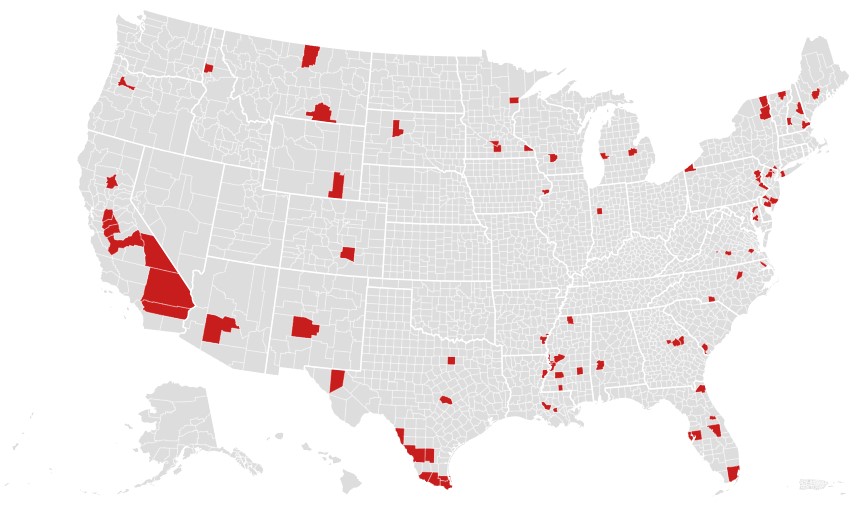Published by REALTOR.com | December 17, 2024
Could your vote in the last presidential election affect your home’s value?
Although it was not the primary focus, the authors of a study published last year in the Journal of Real Estate Research observed an intriguing historical trend: Counties that flipped their votes from the incumbent party candidate to the non-incumbent, who then went on to win the election, saw superior home price performance over the next four years.
For the recent election, that scenario applies to counties that voted for Democrat Joe Biden in 2020 but then flipped in 2024 to favor Republican Donald Trump, who won the election.
If the historical trend is any guide, those counties might now see higher average growth in home prices over the course of Trump’s second White House term, when compared with counties that voted for Biden in 2020 and remained loyal to the Democratic Party in 2024.
Counties That Flipped Their Presidential Vote From 2020 to 2024
At least 84 counties that voted for Democratic candidate Joe Biden in 2020 flipped their vote to Republican Donald Trump in 2024. A study suggests those areas could see superior home price performance in the coming years, based on historical trends.
A Realtor.com® analysis of election data has identified at least 84 counties across the country that flipped from Biden in 2020 to Trump in 2024, from Florida’s densely populated Miami-Dade County to Montana’s remote Blaine County hugging the Canadian border.
“These counties you identified could potentially experience superior housing performance following the election,” says the study’s lead author Eren Cifci, an assistant professor of finance at Austin Peay State University in Tennessee.
“That being said, our results are suggestive rather than definitive. It’s not possible to account for all factors influencing these outcomes,” he adds, noting that the study’s postelection price analyses were limited by a lack of comprehensive economic data.
Still, the idea that election results could influence home prices is intriguing, and homebuyers considering a purchase in one of the recently flipped counties might want to take note.
Why would home prices rise faster in flip counties?
The recent study, titled “Housing Performance and the Electorate,” examined home prices and presidential election results at the county level for the six elections from 2000 to 2020, including four elections in which the White House changed party control.
It’s important to note that the postelection home price trend applied equally to Democrats and Republicans—whichever party is out of power and retakes the White House tends to see its flip county supporters benefit from superior home price performance.
Cifci tells Realtor.com that he does believe a causal relationship between election outcomes and home prices is at play.
“One possible explanation for these findings is that the rival party may recognize the critical role these counties played in securing their victory. Consequently, they might invest in these areas and work to improve living conditions to maintain voter support in future elections,” he says.
In other words, after winning over new voters who helped it retake the White House, the winning party could find ways to reward those voters with increased federal spending on things like infrastructure, attracting new jobs, and boosting home values.
“Another explanation might be that when these counties flipped to the non-incumbent party, it reflected a desire for change—likely positive changes, including economic improvements. With the non-incumbent party now in power, those changes could manifest in various ways,” says Cifci.
Perhaps, galvanized after voting for a change in the White House, residents of the flip counties feel encouraged to get more involved with local government, volunteer work, or the local economy—the kind of activities that can improve a community and raise home values.
Interestingly, Cifci’s study did not find a statistically significant impact on home prices in counties that flipped their vote to an incumbent party candidate who then won the election.
That could suggest that a party already in control of the White House tends to take its newfound supporters for granted, or that flipping to the incumbent isn’t as galvanizing at the local level.
As well, no impact on home prices was observed in counties that flipped to the non-incumbent candidate if that candidate did not go on to win the election.
Cifci tells Realtor.com that the study should not be taken as a guarantee that home prices will outperform in the counties that flipped in favor of Trump in 2024, but rather as a statistical indicator of a potential trend.


